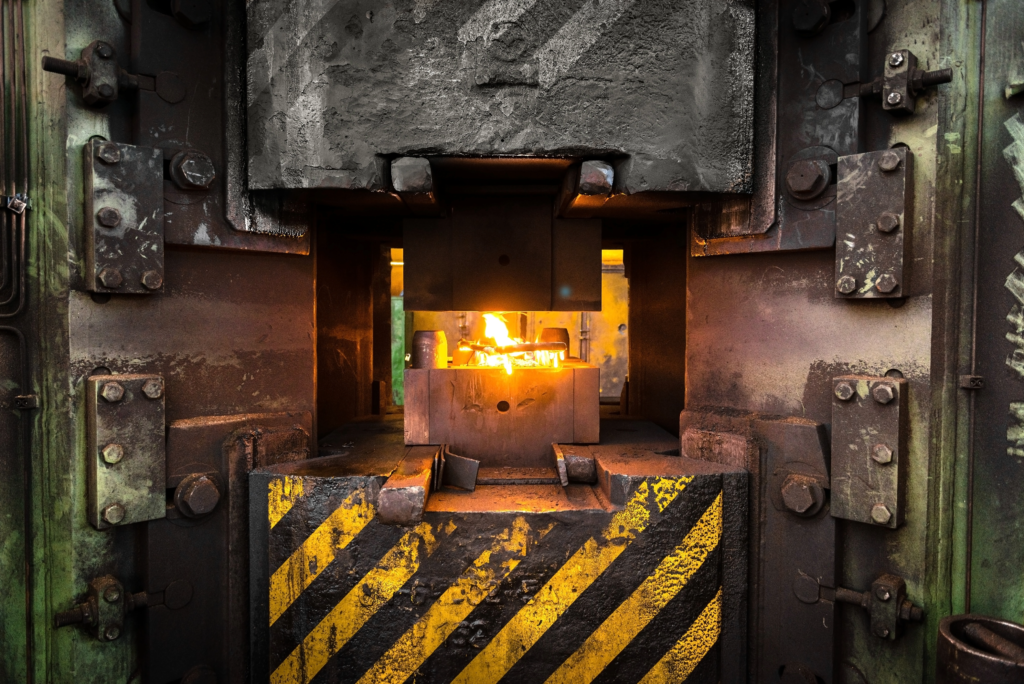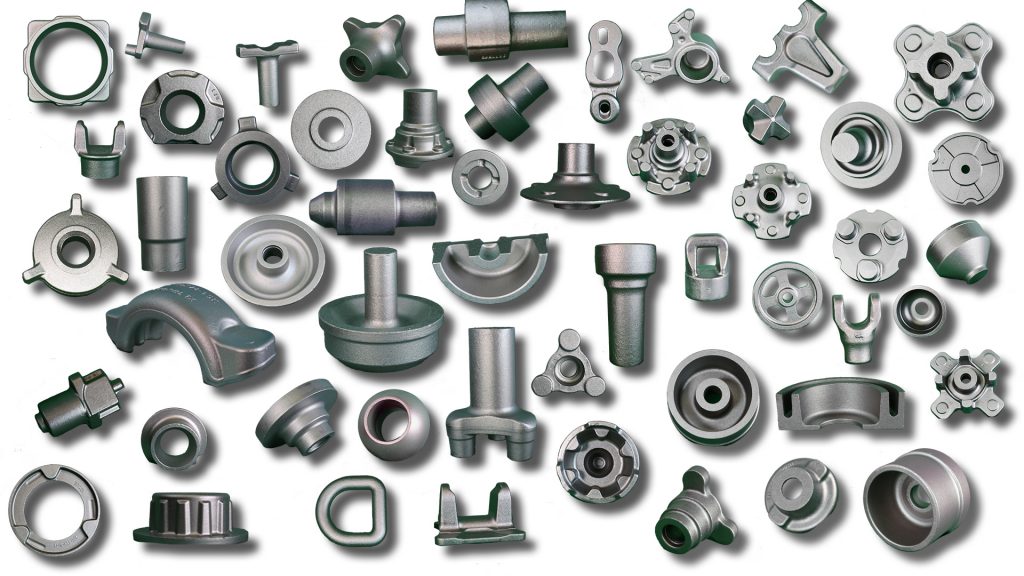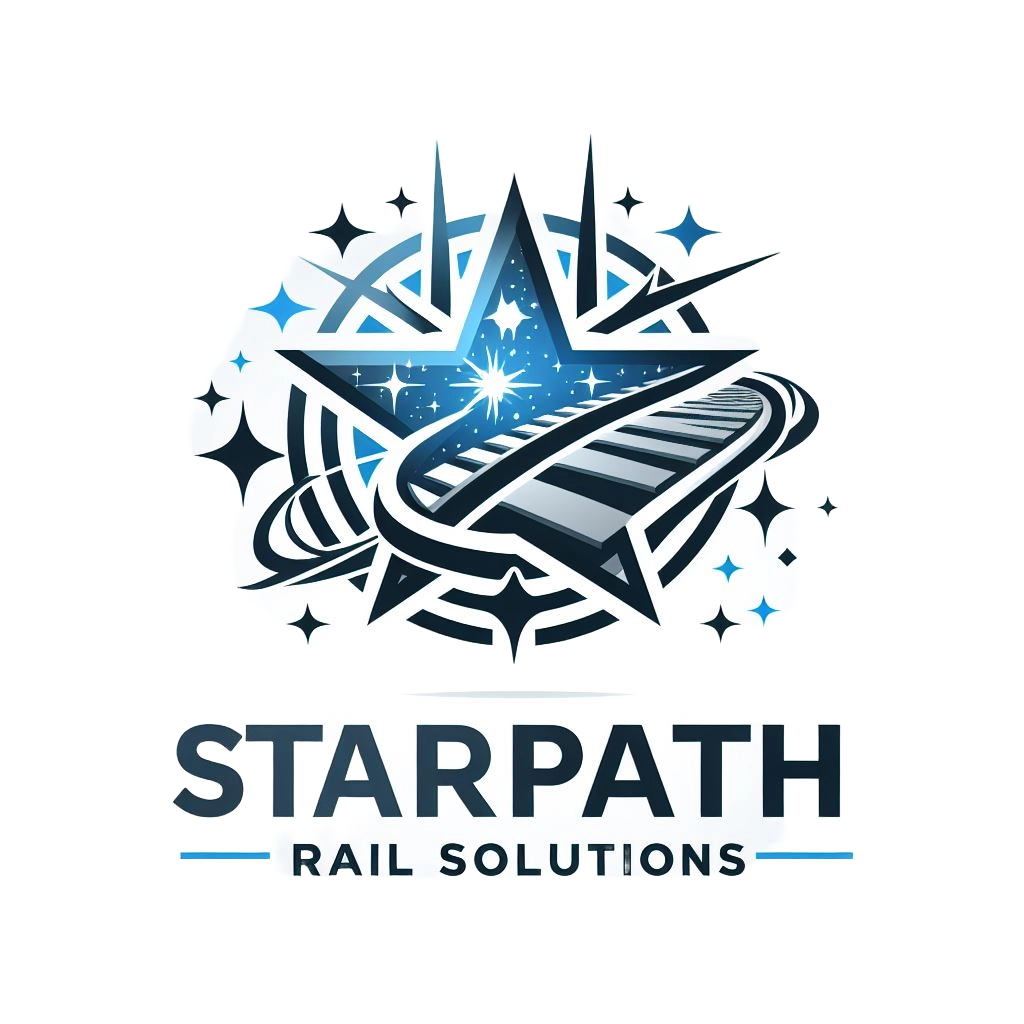Introduction: Custom forging is a manufacturing process that offers significant advantages for producing high-quality, durable industrial parts. By applying heat and pressure to metal, forging refines the grain structure, enhancing the strength and reliability of the final product. In this article, we will explore the benefits of custom forging, compare it to other manufacturing methods, and highlight its applications in various industries, particularly focusing on industrial parts like railroad anchors and railroad fasteners.
Understanding Custom Forging Manufacturing

Custom forging involves shaping metal using localized compressive forces. This process is typically performed by hammering or pressing the metal, which can be heated (hot forging) or kept at room temperature (cold forging). The primary goal is to alter the metal’s shape while improving its structural integrity. Unlike casting, which involves melting metal and pouring it into a mold, forging ensures a more refined grain structure and superior mechanical properties.
Advantages of Custom Forging Manufacturing Over Other Methods

1. Superior Strength and Durability: Custom forging produces industrial parts with superior mechanical properties compared to other manufacturing methods. The process aligns the metal’s grain structure, resulting in improved tensile strength, toughness, and fatigue resistance. For example, railroad anchors and railroad fasteners must withstand extreme stresses and environmental conditions. Forged parts are ideal for such applications due to their enhanced durability.
2. Improved Material Utilization: Forging manufacturing allows for precise control over the shape and dimensions of the final product, reducing material waste. This efficient use of raw materials not only lowers production costs but also minimizes the environmental impact of the manufacturing process. In industries where material costs are significant, such as aerospace and automotive, optimizing material usage can lead to substantial savings.
3. Enhanced Metallurgical Properties: The forging process refines the metal’s microstructure, eliminating internal defects such as porosity and inclusions. This leads to improved ductility and impact resistance, ensuring that forged parts perform reliably even under extreme conditions. For instance, in the construction industry, forged components like hydraulic cylinders and structural supports must endure high pressure and heavy loads without failure.
4. Versatility in Design: Custom forging offers flexibility in designing complex shapes and sizes. Whether you need small precision components or large structural parts, forging can accommodate a wide range of requirements. This versatility makes it suitable for various industries, including automotive, aerospace, and construction. Custom forging also allows for the creation of intricate designs that would be challenging or impossible to achieve with other manufacturing methods.
5. Cost-Effective Production: While the initial tooling costs for forging can be higher than other methods, the long-term benefits often outweigh the upfront investment. The reduced need for secondary machining, lower scrap rates, and faster production times contribute to overall cost savings. For example, in the production of railroad fasteners, the efficiency and durability of forged parts can lead to lower maintenance costs and longer service life.
Comparing Forging to Other Manufacturing Methods

Forging vs. Casting:
- Strength and Durability: Forged parts are generally stronger and more durable than cast parts due to the refined grain structure achieved during forging.
- Surface Quality: Forging often results in better surface quality and fewer defects compared to casting.
- Material Waste: Casting can produce more material waste compared to forging, as it often involves removing excess material after shaping.
Forging vs. Machining:
- Efficiency: Forging is typically more efficient than machining, as it can produce near-net shapes that require minimal secondary processing.
- Material Utilization: Machining can result in significant material waste, whereas forging optimizes material usage.
- Strength: Forged parts often exhibit superior strength compared to machined parts, which can be advantageous in high-stress applications.
Forging vs. Additive Manufacturing:
- Production Speed: Forging can produce parts faster than additive manufacturing (3D printing), especially for large-scale production.
- Material Properties: Forged parts generally have better mechanical properties compared to parts produced through additive manufacturing.
- Cost: While additive manufacturing can be cost-effective for prototyping and small runs, forging is often more economical for mass production.
Applications of Custom Forging in Various Industries

Automotive Industry: In the automotive sector, custom forging is used for critical components such as crankshafts, connecting rods, gears, and suspension parts. The high strength and durability of forged parts ensure the reliability and performance of vehicles. Additionally, forged components contribute to vehicle safety by withstanding the stresses and impacts encountered during operation.
Aerospace Industry: Aerospace applications demand materials that can withstand extreme temperatures, pressures, and stresses. Custom forging produces lightweight, high-strength components like turbine blades, landing gear parts, and structural components that meet these stringent requirements. The enhanced metallurgical properties of forged parts are crucial for ensuring the safety and performance of aircraft.
Construction Industry: Forged parts are essential in construction machinery and equipment, providing the strength and toughness needed for heavy-duty operations. Examples include excavator arms, hydraulic cylinders, and structural supports. The reliability of forged components is vital for the safety and efficiency of construction projects, where equipment failure can lead to costly delays and hazards.
Railroad Industry: The railroad industry relies heavily on forged parts for critical components such as railroad anchors, railroad fasteners, and track components. These parts must endure constant stress and harsh environmental conditions. Custom forging ensures that these components meet the required strength and durability standards, contributing to the safety and efficiency of rail transportation.
Oil and Gas Industry: In the oil and gas sector, forged components are used in drilling equipment, pipelines, and valves. These parts must withstand high pressures, temperatures, and corrosive environments. Custom forging provides the necessary strength and reliability for these demanding applications, reducing the risk of equipment failure and ensuring continuous operation.
The Custom Forging Process

1. Design and Planning: The custom forging process begins with designing the part and planning the forging operation. This involves selecting the appropriate material, determining the required dimensions and tolerances, and creating detailed drawings or CAD models. The design phase is crucial for ensuring that the final product meets all specifications and performs as intended in its application.
2. Material Selection: Choosing the right material is crucial for achieving the desired properties in the forged part. Common materials used in forging include carbon steel, alloy steel, stainless steel, aluminum, and titanium. The material selection depends on the specific application and performance requirements. For instance, high-strength steel might be chosen for automotive components, while corrosion-resistant stainless steel might be preferred for marine applications.
3. Heating: In hot forging, the metal is heated to a temperature where it becomes malleable but remains solid. This typically involves heating the metal in a furnace to temperatures ranging from 900°C to 1300°C (1650°F to 2370°F), depending on the material. Proper heating is essential for achieving the right balance between malleability and structural integrity, allowing the metal to be shaped effectively without compromising its strength.
4. Forging: The heated metal is then shaped using a forging press or hammer. This step involves applying compressive forces to deform the metal into the desired shape. The forging process can be performed using various techniques, including open-die forging, closed-die forging, and upset forging. Open-die forging allows for the production of large and simple shapes, while closed-die forging enables the creation of more complex and precise components.
5. Cooling and Finishing: After forging, the part is cooled gradually to relieve internal stresses. Once cooled, the part may undergo additional finishing processes such as machining, grinding, or heat treatment to achieve the final specifications. Heat treatment can enhance the mechanical properties of the forged part, such as hardness and toughness, while machining and grinding ensure that the part meets the precise dimensions and surface finish requirements.
6. Inspection and Quality Control: The forged part undergoes rigorous inspection and quality control to ensure it meets the required standards. This includes dimensional checks, non-destructive testing, and metallurgical analysis. Non-destructive testing methods, such as ultrasonic or radiographic inspection, are used to detect any internal defects or inconsistencies. Metallurgical analysis examines the microstructure and composition of the forged part to confirm that it has achieved the desired properties.
Starpath Railroad Material Supply’s Expertise in Custom Forging
At Starpath Railroad Material Supply, we specialize in custom forging manufacturing, delivering high-quality railroad anchors, railroad fasteners, and other industrial parts. Our state-of-the-art forging facilities and experienced team ensure that every product meets the highest standards of quality and performance. We work closely with our clients to develop customized solutions that address their specific needs, from design to production. Our commitment to quality and customer satisfaction sets us apart as a leader in the forging industry.
Tailored Solutions for Diverse Industries
Starpath Railroad Material Supply’s expertise extends across various industries, offering tailored forging solutions that meet the unique demands of each sector. Whether it’s the automotive industry’s need for high-strength components or the aerospace sector’s requirement for lightweight, durable parts, we deliver products that exceed expectations. Our collaborative approach ensures that we understand the specific challenges and objectives of our clients, enabling us to provide solutions that drive success.
Innovative Manufacturing Techniques
We continually invest in advanced forging technologies and techniques to enhance our manufacturing capabilities. By leveraging the latest innovations, we can produce complex and precise components with exceptional quality. Our commitment to innovation ensures that we remain at the forefront of the forging industry, delivering cutting-edge solutions that meet the evolving needs of our clients.
Our Commitment to Quality
Quality is the cornerstone of everything we do at Starpath Railroad Material Supply. We adhere to strict quality control standards at every stage of the manufacturing process, from material selection to final inspection. Our quality assurance team uses state-of-the-art testing and inspection equipment to verify that each product meets the highest standards of performance and reliability. This rigorous approach to quality control ensures that our clients receive products that they can depend on, even in the most demanding applications.
Custom Forging Solutions for Your Business
Whether you need railroad anchors, railroad fasteners, or any other industrial parts, Starpath Railroad Material Supply has the expertise and capabilities to deliver custom forging solutions that meet your needs. Our team of experienced engineers and metallurgists work closely with you to understand your requirements and develop parts that are tailored to your specifications. We offer a wide range of forging capabilities, including open-die forging, closed-die forging, and upset forging, allowing us to produce parts of various sizes and complexities.
Partnering with Starpath Railroad Material Supply
Partnering with Starpath Railroad Material Supply means gaining access to a wealth of knowledge and experience in custom forging manufacturing. We are dedicated to building long-term relationships with our clients, providing exceptional service and support throughout the entire project lifecycle. From initial consultation and design to production and delivery, we are committed to ensuring your complete satisfaction.
Conclusion
Custom forging manufacturing offers unparalleled benefits in terms of strength, durability, and versatility. By choosing Starpath Railroad Material Supply for your forging needs, you can be confident in the quality and reliability of your industrial parts. Our expertise in custom forging, combined with our state-of-the-art facilities and commitment to quality, makes us the ideal partner for your manufacturing requirements. Contact us today to learn more about our custom forging solutions and how we can help meet your manufacturing needs.

